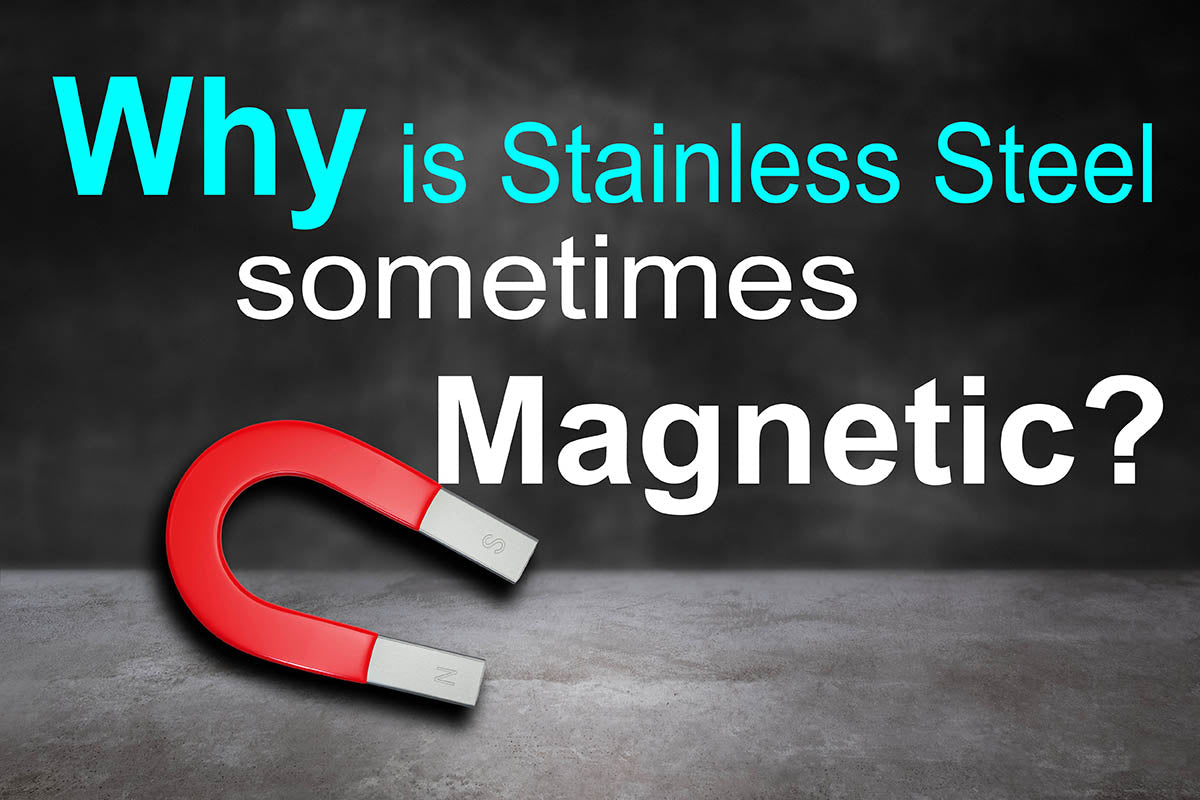Why is Stainless Steel Sometimes Magnetic?
One of the most common questions we get at Monster Bolts is: “If my stainless steel fastener is magnetic, does that mean it’s not really stainless?” The short answer is no — magnetism in stainless steel doesn’t mean it’s fake. It has more to do with crystal structure, chemical composition, and the way fasteners are manufactured. Let’s break it down.
Crystal Structures: Austenitic vs Martensitic
Stainless steel is classified by its crystal structure. This is the key factor that determines whether it is magnetic or not.

- Austenitic (200 & 300 series): Face-centered cubic (FCC) structure. Stabilized by higher nickel content, these alloys (like A2/304 and A4/316) are generally non-magnetic.
- Martensitic (400 series): Body-centered cubic (BCC) structure. With much less nickel, martensitic stainless steels are magnetic and harder, but typically have lower corrosion resistance.
Composition Breakdown
The difference in crystal structure is tied to the alloy’s nickel and chromium content. Here’s how common families compare:
200 & 300 Series (Austenitic – Non-Magnetic)
- 66–75% Iron
- 5–20% Chromium
- 8–12% Nickel
- 0–2% Molybdenum (316 / A4 Marine Grade)
- <1% trace Carbon, Manganese, Phosphorus, Sulphur, Silicon
400 Series (Martensitic – Magnetic)
- 66–75% Iron
- 5–17% Chromium
- 0–4% Nickel
- 0–1.1% Carbon
- 0–1.1% Molybdenum
Cold Working and Fasteners
Even when using non-magnetic A2 (304) stainless, fastener manufacturing can introduce magnetism. Processes like:
- Cold heading: forming screw heads under pressure
- Thread rolling: displacing material instead of cutting it
- Wire drawing: reducing diameter through dies
All of these increase the amount of strain-induced martensite in the material. That’s why an A2 stainless screw may stick slightly to a magnet — it’s simply a result of cold working, not a sign of lower quality. Importantly, corrosion resistance remains the same.
Does Magnetism Affect Corrosion Resistance?
No. Corrosion resistance in stainless comes from chromium forming a passive oxide layer on the surface, not from magnetism. So whether your stainless fastener is slightly magnetic or not, it will perform as expected in its rated environment.
FAQs
Is 18-8 stainless steel magnetic?
18-8 (A2 / 304) stainless is non-magnetic in theory, but can become slightly magnetic after cold working during fastener manufacturing.
Why do some of my stainless screws stick to a magnet?
It’s usually due to strain-induced martensite from thread rolling or cold forming. The corrosion resistance is unaffected.
Which stainless steels are fully magnetic?
The 400 series (martensitic) stainless steels are strongly magnetic. These are less corrosion-resistant but harder than austenitic grades.
Does magnetism mean my stainless steel is fake?
No. Magnetism alone does not indicate quality. The key factor for corrosion resistance is the chromium content, not whether the steel is magnetic.
Key Takeaway
If your stainless screws show a little attraction to a magnet, don’t worry — they are still genuine stainless steel. The magnetism comes from the way fasteners are manufactured, not from poor quality. For reliable stainless fasteners, explore our collections:


1 comment
David
Can 304 stainless be magnetized if so how?